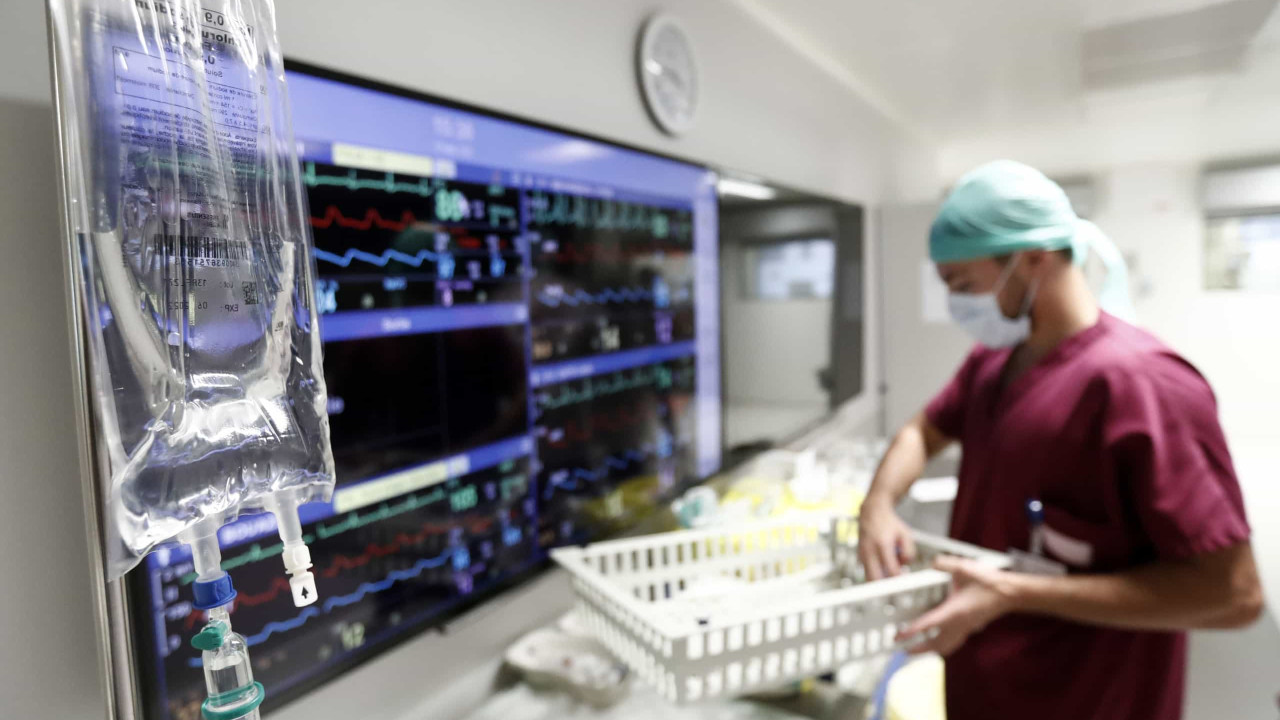“TJose Artur Paiva said in an interview with Lusa Agency that as a result of this pandemic, the clear perception that the unpredictable will happen, as expected, more often than not.
Referring to the context in which we live, from globalization, the proximity of the animal kingdom to the human kingdom, or climate change and the evolution of resistance to microorganisms, José Artur Paiva stressed that “it is clear that the number of unexpected events in terms of public health will be more and more frequent” .
“For this reason, we must always be prepared,” added the specialist, who is critical of the way primary care is framed with hospital care, and considers the current referral system “inherited and outdated.”
“It is necessary to change the paradigm. Stop living in an environment where we are in an emergency or not,” he said.
The co-coordinator of the National Response Monitoring Committee on Intensive Medicine to covid-19 argued that “increased training of primary care physicians in specialty areas would lead to a decrease in hospital transportation use” and that “hospitals need more changing geographies, to obtain On quiet areas they are turned on when needed.”
Two years after the emergence of the Covid-19 virus in Portugal, José Artur Paiva took the opportunity to emphasize that “care of health professionals must be on the agenda”, which is not only about financial conditions, but about projects, research, professional creativity and working conditions.
“We cannot continue to let our best professionals out of the National Health Service,” he stressed, noting that it was time to think about the weight that the Covid-19 virus, although slowing, would leave on the health system.
Among other examples, Lusa told the specialist, there are recent studies indicating that infection with COVID-19 with some expression increases the likelihood of developing cardiovascular disease in the following year.
Already asked about the country’s current response, the head of the Faculty of Intensive Medicine at Ordem dos Médicos acknowledged that the pandemic had accelerated “significant capacity-building for intensive medicine”, but if the increase in beds was accompanied by an increase in equipment, the increase in human resources “was not so great.” ‘, particularly with regard to the availability of nurses with differentiated training.
According to José Artur Paiva, Portugal currently has 850 beds for critically ill patients, 230 more than in January 2020, but about 5% (about 40) are inactive.
He explained, “We still have a small amount, 5% of the beds are inactive due to the lack of human resources. The biggest obstacle for all the family to get active is the lack of nurses.”
As business continues in the country, the number of intensive care beds will “soon” rise to 900, which is close to the European average, which in January 2020 was 9.2 per 100,000 inhabitants.
“I think we will reach the end of this phase of the epidemic crisis very close to the European average. But without Covid-19, is this capacity necessary? Obviously yes,” the specialist stressed.
José Artur Paiva noted that historically intensive medicine services operated in Portugal, even before Covid-19, where occupancy rates exceeded 90%, while at the international level, it is known that occupancy rates should be around 80%.
“This increase in intensive care medicine is essential, it prepares us for the natural epidemiology of diseases – we weren’t prepared compared to other European countries – and it gives us flexibility to respond. It allows us to respond to something that will be increasingly repetitive.”
Covid-19 has caused at least 5,952,685 deaths worldwide since the start of the pandemic, according to the latest report from AFP.
In Portugal, since March 2020, 21,111 people have died, and 3,282,457 cases of infection have been recorded, according to the latest update from the Directorate General of Health.
A respiratory disease caused by the SARS-CoV-2 coronavirus, which was discovered in late 2019 in the central Chinese city of Wuhan.
The rapidly spreading micron-micron variant has become prevalent in the world since it was first discovered in November in South Africa.
Read also: Covid. About 20% of hairdressers did not open their doors after the first confinement

“Writer. Analyst. Avid travel maven. Devoted twitter guru. Unapologetic pop culture expert. General zombie enthusiast.”

